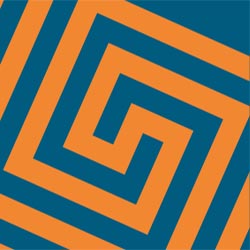A History of Western Society: Printed Page 82

PRIMARY SOURCE 3.4
Sophocles, Antigone
The plays of Sophocles concern matters personal, political, and divine. In Antigone (an-TIH-guh-nee), produced in or before 441 B.C.E., Polyneices (pahl-eh-NIGH-sees) and Eteocles (eh-tee-OH-klees), the sons of King Oedipus of Thebes, have killed each other in a war over who would rule. Creon, the brother of Oedipus’s wife, Jocasta (who is also Oedipus’s mother, but that’s the plot of another play; see page 81), is now king, and orders the body of Polyneices to be left to rot. Polyneices’s sister (and Creon’s niece) Antigone disobeys him, buries Polyneices, and carries out the proper funeral rituals. Creon condemns her to be walled up, so she hangs herself. Creon’s son and Antigone’s fiancé, Haemon, then kills himself, as does Creon’s wife. The heart of the play is a series of confrontations between Creon and Antigone.
 Creon (to Antigone):
Creon (to Antigone):
You — tell me not at length but in a word.
You knew the order not to do this thing?
Antigone:
I knew, of course I knew. The word was plain.
Creon:
And still you dared to overstep these laws?
Antigone:
For me it was not Zeus who made that order.
Nor did that Justice who lives with the gods below
mark out such laws to hold among mankind.
Nor did I think your orders were so strong
that you, a mortal man, could over-run
the gods’ unwritten and unfailing laws.
Not now, nor yesterday’s, they always live,
and no one knows their origin in time
So not through fear of any man’s proud spirit
would I be likely to neglect these laws,
draw on myself the gods’ sure punishment.
I knew that I must die; how could I not?
even without your warning. If I die
before my time, I say it is a gain.
Who lives in sorrows many as are mine
how shall he not be glad to gain his death?
And so, for me to meet this fate, no grief.
But if I left that corpse, my mother’s son,
dead and unburied I’d have cause to grieve
as now I grieve not.
And if you think my acts are foolishness
The foolishness may be in a fool’s eye.
…
I go, without a friend, struck down by fate,
live to the hollow chambers of the dead.
What divine justice have I disobeyed?
Why, in my misery, look to the gods for help?
Can I call any of them my ally?
I stand convicted of impiety,
the evidence my pious duty done.
Should the gods think that this is righteousness,
in suffering I’ll see my error clear.
But if it is the others who are wrong
I wish them no greater punishment than mine.
…
Look what I suffer, at whose command,
Because I respected the right. 
Source: Sophocles I: Antigone, trans. Elizabeth Wyckoff, in The Complete Greek Tragedies (Chicago: Phoenix Books, 1954), pp. 173–174, 190, 191. Copyright © 1954 by The University of Chicago. All rights reserved. Used by permission of the publisher.
EVALUATE THE EVIDENCE
Sophocles, Antigone
How does Antigone justify what she has done? How does she describe the relationship between divine law and political law?
Sophocles, Antigone
Given what was going on in Athens at the time that this play was performed, how can Antigone’s words be seen as political commentary?